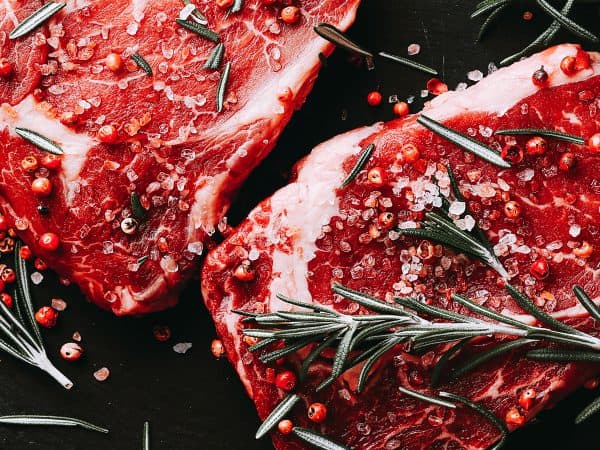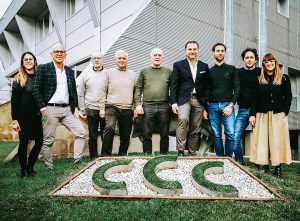
Centro Carni Company
We are Italian. Good food is our passion.
Centro Carni Company is one of the most important Italian companies in the field of meat processing, based in Tombolo in the province of Padua. The history of the company dates back to the late 1890s.
In 1974 the company To.Car. (Tombolo Carni), a company trading in beef and pork, was founded. In 1979 the merger with CENTRO CARNI CONGELATE was completed. Since 1993 the company has been constantly growing, from the marketing of frozen products to the national and international trade in fresh products. In 2 000 the company became a public limited company called Centro Carni Company.
We met Mr. Nicola Pilotto, Director of Administration and Finance.
Centro Carni Company´s history began over 100 years ago. In your opinion, what were the most important stages of the “meat trade” over the last century?
First of all, it was the post-war prosperity that led to a gradual increase in meat consumption. Then, in the 1970s, the concept of fast food was born and spread, and the hamburger became a “gourmet” product over the years. Finally, over the last 30 years, “mad cow disease“ has changed the way the product is processed, forcing companies to innovate.
The Centro Carni Company was founded as a family business and has developed exceptionally in its sector on a path of continuous growth. What were the most important stages in the history of your company?
Tombolo is a place that has always been dedicated to the beef trade. Our predecessors were already marketing beef in 1890. Between the end of the 1970s and the beginning of the 1980s, the groundbreaking decision was made to invest in meat processing and thus to move from a purely sales to the production sector.
What were the biggest challenges that the company faced in the last 20 years?
The late 1990s were marked by “mad cow disease”. During this period, the company moved from mainly frozen products for export to fresh products for sale in Italy, reaching annual sales of between 15 and 20 million euros in the early 2000s. Between 2005 and 2006, we continued to invest by increasing our production area by more than 2000 m2, consolidating the boning business and expanding the product range. As a result, we achieved sales of 107 million euros last year.
What are the most important investments Centro Carni Company has made recently and where will the company’s development take us in the next 10 years?
Today we are working on expanding the production area by another 7500 m2, i.e. doubling the current size. We have also invested heavily in management over the last few years. With the support of Staufen-JMAC, we have developed and optimized several business areas: from marketing strategies to industrial and commercial policy measures, with the focus in this last period being on purchasing and operations. All this with two objectives: to accompany us with a planning logic in our corporate development and to expand our internal management. A path that began 3 years ago and which will allow the company to make a further qualitative leap from the management’s point of view. At the same time, a solid family basis is to be maintained.
How do you optimize human resources management?
We believe in people and their potential. Over the years, we have introduced a social policy to support our employees. We invest in their training, because the professional and human growth of people is also based on education and work culture. We love specialization, but we believe that people should also have a comprehensive knowledge of the work environment.
How have the tastes and habits of Italian and foreign meat consumers changed over the years? How will the products change in the future?
We have always distinguished ourselves by our drive to innovate, often anticipating market preferences and consumer tastes. In addition to continuing an important selection activity, in recent years we have further changed our approach: a mixture of research and development of private labels, aimed at differentiating the product in order to decouple it from the raw material dynamics that characterize our sector in itself.
Recently, the trends towards more responsible meat consumption have multiplied. What is your company’s position on this?
In the last 10 – 12 years alone, annual per capita consumption of beef has fallen by around 10 kg, due to both health and environmental sustainability aspects of animal welfare. Thus, in addition to quality and product presentation, we also support consumption through communication campaigns. We consider it essential to revive the culture of meat preparation and the enjoyment of high quality meat, which unfortunately has almost been lost, and to provide consumers with ever better information in order to bring them closer to our world and our supply chain. The MEat SCHOOL project was born from this vision. We will also not forget and continue to monitor protein products that are an alternative to meat.

How has the growing public awareness of environmental sustainability issues affected your company?
For us, efficiency has always gone hand in hand with innovation and sustainability, which is why for over 10 years we have only been using electricity from renewable energy sources. At the same time, we have introduced measures to reduce energy consumption. This has enabled us to increase production by 10 – 15 % and reduce energy consumption by almost 30 %. The role of packaging is also becoming increasingly important. Systematic research and the use of materials that respect the environment are essential.
MEat School is a new nutrition education project that will be launched soon. What is it about, who is the project aimed at and what are its objectives?
The MEat School project is not so much a business school, but rather a training centre for professionals and to inform consumers about the beef supply chain. This training is not only for “internal” people. It is rather to create a network with the site, with our partners, with universities, business schools and vocational schools with a view to “coopetition” (a mixture of competition and cooperation). What starts out as a school today will, over time, evolve into MEat Start, a hub through which new start-ups are created both in areas directly related to the supply chain as well as in product areas.
